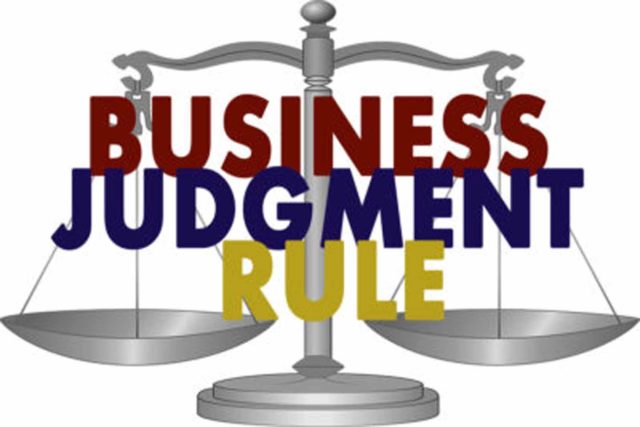How do a board of directors’ powers, functions, training, and formal opinions affect community associations?
Board of directors’ powers, functions, training, and formal opinions play pivotal roles in the governance and management of community associations in Florida. Directors must understand the extent and limitations of their powers to make decisions on behalf of the association.
Functions of the board of directors are multifaceted, encompassing matters such as strategic planning, oversight of financials, and enforcement of community rules. Each function contributes to the overall well-being and sustainability of the community association.
Accordingly, training is a cornerstone for effective governance. Board members must undergo training to familiarize themselves with their roles, responsibilities, and legal obligations. Such training ensures informed decision-making and reduces the risk of legal liabilities.
Lastly, formal opinions provide clarity on complex matters. Seeking legal counsel or expert opinions helps boards navigate intricate issues such as interpretation of governing documents, enforcement actions, or dispute resolution.
Need help regarding corporate/board of directors’ powers, functions, training, and formal opinions? Schedule your consultation today with a top community associations attorney.
In Florida, which laws and regulations apply to a board of directors’ powers, functions, training, and formal opinions?
In Florida, several laws and regulations apply to a board of directors’ powers, functions, training, and formal opinions. For example, Florida’s Condominium Act, Cooperative Act, and Homeowners’ Association Act serve as the primary laws establishing the frameworks for these different types of community associations. These Acts delineate the powers and responsibilities of association boards, including the authority to adopt rules, levy assessments, and maintain common areas.
What are common issues regarding a board of directors’ powers, functions, training, and formal opinions that lead to litigation?
The following issues are among the most common in actions regarding a board of directors’ powers, functions, training, and formal opinions:
- Failure to Adhere to Governing Documents: When community associations deviate from the provisions outlined in their governing documents, such as bylaws or declarations, association members may initiate legal challenges.
- Mismanagement of Funds: Improper handling of association funds, including misappropriation or lack of transparency in financial transactions, can result in lawsuits alleging financial misconduct.
- Inadequate Training of Board Members: Board members who lack sufficient training and understanding of their roles and responsibilities may make decisions that are not in the best interest of the association, opening the door to litigation.
- Disputes over Rule Enforcement: Inconsistent or arbitrary enforcement of community rules and regulations can lead to conflicts with residents, ultimately culminating in litigation over perceived unfair treatment.
- Conflicts of Interest: Instances where board members have personal interests conflicting with their fiduciary duties to the association can give rise to allegations of self-dealing or breach of duty, potentially leading to litigation.
- Failure to Seek Legal Guidance: Neglecting to obtain legal guidance and formal legal opinions on complex matters, such as interpretation of governing documents or enforcement actions, may leave community associations vulnerable to legal challenges based on inadequate or erroneous decision-making.
We are value-based attorneys at Jimerson Birr, which means we look at each action with our clients from the point of view of costs and benefits while reducing liability. Then, based on our client’s objectives, we chart a path to seek appropriate remedies.
To determine whether your unique situation may necessitate litigation, please contact our office to set up your initial consultation.
What steps should community associations take to minimize the risk of litigation over a board of directors’ powers, functions, training, and formal opinions?
To minimize the risk of litigation board of directors’ powers, functions, training, and formal opinions, community associations can implement the following strategies:
- Comprehensive Training Programs: Provide ongoing education and training for board members to ensure they understand their duties, legal obligations, and best practices for governance.
- Transparent Communication: Foster open communication channels between the board, management, and community members to promote transparency and address concerns proactively.
- Adherence to Governing Documents: Consistently apply and enforce provisions outlined in governing documents, such as bylaws and declarations, to maintain consistency and fairness in decision-making.
- Regular Legal Counsel Engagement: Seek training, formal opinions, and other legal guidance from qualified professionals on complex matters, ensuring compliance with applicable laws and regulations and reducing the likelihood of legal disputes.
- Ethical Governance Practices: Maintain high ethical standards among board members, including disclosure of conflicts of interest and adherence to fiduciary duties, to prevent allegations of misconduct and legal challenges.
Frequently Asked Questions
How often should board members undergo training?
Board members should undergo training regularly, ideally annually or whenever there are significant changes in laws, regulations, or association governance. Continuous education ensures that board members stay informed about their roles, responsibilities, and legal obligations.
Can association members challenge decisions made by the board of directors?
Yes, association members generally have the right to challenge decisions made by the board of directors through various means, including filing grievances, attending association meetings, and, if necessary, pursuing legal action. However, challenges must be based on legitimate grounds and comply with the association’s dispute resolution procedures.
How can conflicts between board members be resolved?
Conflicts between board members can be resolved through open communication, mediation, or, if necessary, arbitration. Board members should prioritize the best interests of the association and work collaboratively to find mutually acceptable solutions to conflicts.
Have more questions about a situation related to a board of directors’ powers, functions, training, or formal opinion?
Crucially, this overview of board of directors’ powers, functions, training, and formal opinions does not begin to cover all the laws implicated by this issue or the factors that may compel the application of such laws. Every case is unique, and the laws can produce different outcomes depending on the individual circumstances.
Jimerson Birr attorneys guide our clients to help make informed decisions while ensuring their rights are respected and protected. Our lawyers are highly trained and experienced in the nuances of the law, so they can accurately interpret statutes and case law and holistically prepare individuals or companies for their legal endeavors. Through this intense personal investment and advocacy, our lawyers will help resolve the issue’s complicated legal problems efficiently and effectively.
Having a Jimerson Birr attorney on your side means securing a team of seasoned, multi-dimensional, cross-functional legal professionals. Whether it is a transaction, an operational issue, a regulatory challenge, or a contested legal predicament that may require court intervention, we remain tireless advocates at every step. Being a value-added law firm means putting the client at the forefront of everything we do. We use our experience to help our clients navigate even the most complex problems and come out the other side triumphant.
If you want to understand your case, the merits of your claim or defense, potential monetary awards, or the amount of exposure you face, you should speak with a qualified Jimerson Birr lawyer. Our experienced team of attorneys is here to help. Call Jimerson Birr at (904) 389-0050 or use the contact form to schedule a consultation.

We live by our 7 Superior Service Commitments
- Conferring Client-Defined Value
- Efficient and Cost-Effective
- Accessibility
- Delivering an Experience While Delivering Results
- Meaningful and Enduring Partnership
- Exceptional Communication Based Upon Listening
- Accountability to Goals











